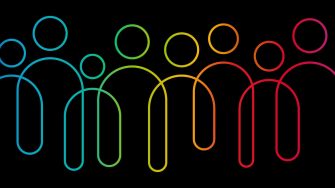
Breaking down barriers
For many of us, the places we live and work in are becoming more diverse. Increased geographical mobility, greater recognition of the rights of minority groups, and more people with disabilities living within mainstream communities mean our societies are rapidly transforming.
Research evidence suggests that diversity in leadership teams, workforces and society is highly valuable and can drive better performance and standards of living. Yet we know there are still significant barriers to inclusion and achievement of equitable rights for women, indigenous people, people from ethnic minority groups, people with disabilities, older people and some religious groups.
This theme focuses on the meaning of diversity and the different ways this can be conceptualised.
We’re also interested in the different policies, services and mechanisms that have been used to drive equity and social inclusion.
Associated schools, institutes & centres
Competitive advantage
Attention to equity, diversity and inclusion outcomes is crucial to successful business practice, public sector management and effective policy implementation. Researchers within this theme have a broad range of theoretical and practical expertise in addressing these issues, with specialities in gender and disability. We’ve undertaken research and consultancy work for state, territory and federal governments and non-government organisations.
-
- Gaps in National Disability Insurance Scheme (NDIS) support for people involved in the criminal justice system
- Flexible working in the ACT Public Service
- Gender barriers to accessing personalised disability funding schemes
- Improving employment outcomes for Australians with disability
- Stewarding thin markets: Improving public sector market effectiveness
- Centre of research excellence in disability and health
- Youth Cohort: Improving disability employment study
- Working from home during a pandemic
-
“People say you’re going home, but I don’t have a home”: Housing After Prison - International Journal of Offender Therapy and Comparative Criminology
Caroline Doyle, Sophie Yates, Lorana Bartels., Anthony Hopkins and Helen Taylor
Exercising meaningful choice and control in the NDIS: Why participants use unregistered providers - University of New South Wales, Canberra
Helen Dickinson, Sophie Yates and Raelene West
Taking the first step in an inclusive life Experiences of Australian early childhood education and care - Children and Young People with Disability
Helen Dickinson, Sophie Yates and Anne Faulkner
War-fighting and left-wing feminist agendas’: gender and change in the Australian Defence Force - Critical Military Studies
Donna Bridges, Anuradha Mundkur and James Connor
Achieving behaviour change for detection of Lynch syndrome using the Theoretical Domains Framework Implementation (TDFI) approach: A study protocol – BMC Health Services Research
Natalie Taylor, Janet C. Long, Deborah Debono, Rachel Williams, Elizabeth Salisbury, Sharron O’Neill, Elizabeth Eykman, Jeffrey Braithwaite and Melvin Chin
Personalisation and pandemic: an unforeseen collision course? – Disability & Society
Helen Dickinson, Gemma Carey, Anne M. Kavanagh
‘An awful state of affairs for you’: managing the needs of older prisoners – a case study from the Australian Capital Territory – Current Issues in Criminal Justice
Isabella Jackson, Caroline Doyle and Lorana Bartels
The Review of the APS: Is gender really on anyone's agenda? – Australian Journal of Public Administration
Linda Colley and Sue Williamson
Women, work and industrial relations in Australia in 2019 – Journal of Industrial Relations
Meraiah Foley, Sue Williamson and Sarah Mosseri
Gender, context and constraint: Framing family violence in Victoria – Women’s Studies International Forum
Sophie Yates
How did COVID-19 impact post-school transitions for young people with disability and how can these be better supported? - Children and Young People with Disability, Melbourne.
Catherine Smith, Helen Dickinson, Amy Marks and Jess Mitchell






